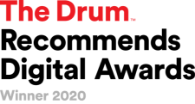Content Creation & On-Page SEO
Create rich, optimised content and achieve competitive keyphrase rankings with specialised SEO keyword research and search intent investigations.


Create rich, optimised content and achieve competitive keyphrase rankings with specialised SEO keyword research and search intent investigations.




On-page SEO involves optimising the content and HTML on a page in order to rank it higher in search engines for specific topics or keyphrases. Our expert team carries out search intent studies as well as SEO keyword research to ensure on-page SEO activities can be implemented without the need to edit code (using a CMS) however some elements do involve editing HTML or JavaScript.
On-page SEO optimisation typically works together with keyphrase research and a priority list of pages – a ‘page plan’ – allowing you to target specific users (your audience) to encourage good engagement and conversion rates. This exercise allows you to focus your content and ensure you target specific keyphrases unique to your industry and business.
One of the main functions of on-page SEO is to write and optimise content in a way that serves your audience and their search intent. By making your content specific in this way you can drive more ‘qualified’ users to your landing pages and increase your engagement and conversion rates (as they are more likely there specifically for your products or services).
Once we know the audience and search intent to target, we will perform SEO keyphrase research, and then write and optimise your content to drive traffic from the SERPs (search engine landing pages) and engage and convert once they land. We follow up keyword research with reports on the performance of your content and refine where needed. Here is the more detailed process:
We will audit your website to identify your KPIs, audience and which search intent to target, along with other information such as brand guidelines. This technical SEO audit will guide all SEO tasks and provide a technical SEO checklist for easy management.
Our expert team also performs keyword research using our years of experience in several industries along with premium tools, ensuring keywords are competitive and specific to your audience and KPIs. This web audit task is central to this service and allows us to streamline your site.
We combine engaging copywriting with keyword optimisation of all key tags and areas in order to drive traffic from the SERPs, then engage and convert your users. We also stay ahead of Google Algorithms, use schema and optimise for rich snippets / position zero.
Using our SEO keyphrase research, along with your business KPIs, we will derive digital KPIs such as keyword topic visibility, SERP CTR, content engagement and conversions. We can then track the progress of the content work and broader SEO work, in order amend and constantly improve your campaign.
Our SEO content writers have experience writing for a wide range of industries, allowing them to pick up technical topics with ease while writing content for the user – aiming for a high level of engagement and conversions.
They work with our technical SEO team to identify and optimise your website using market-leading for SEO keyword research, rich media, position zero (rich results) and mark up all relevant information with schema markup.
All our team members are commercially aware, considerate of search intent, and keep track of your KPIs, seeing beyond your tasks to ensure all these activities cater to your big picture – progressing your KPIs and growing your business.
Get in touch with one of our team members for more information on our services or check out more of what we can offer you as an agency.
“Pall-Ex have been working with Anicca digital for a few years now and our results have been outstanding. The innovation from their team is a breath of fresh air.“

Awards




Advertising Platforms



* Mandatory
Anicca Digital
1 Abbey Gate
Leicester
LE4 0AA